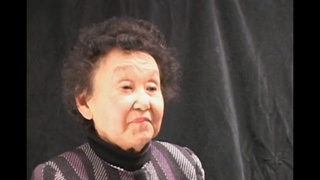Interviews
Not a "camp story" but a human story
Oh you don’t say “the camp story” because it’s (Farewell to Manzanar) not the camp story. This is a human story. I mean do people say, “Oh the Civil War story’s been done”? Or “The Holocaust has been done”? You know, I mean because there are so many different aspects of that. And of course the internment is the landmark experience, I guess, for the…what is it? The watershed experience for Japanese Americans. But you know there are so many shades of it, of how it has affected people. And the stories themselves.
California
concentration camps
Farewell to Manzanar (film) (book)
imprisonment
incarceration
Manzanar concentration camp
United States
World War II
World War II camps
Date: December 27, 2005
Location: California, US
Interviewer: John Esaki
Contributed by: Watase Media Arts Center, Japanese American National Museum









